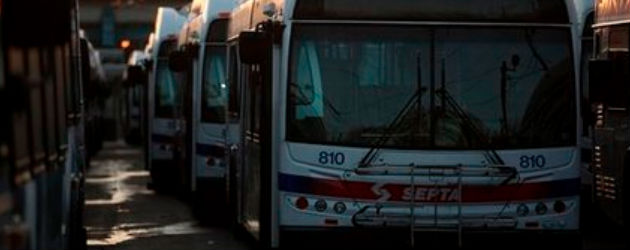Possibility of total SEPTA strike later this year looms
 Courtesy of Phillly.com by Paul Nussbaum: For Philadelphia-area commuters, the possibility of a first-ever transit strike by all SEPTA union workers could loom large when a federally mandated mediation process for Regional Rail engineers expires later this year.
Courtesy of Phillly.com by Paul Nussbaum: For Philadelphia-area commuters, the possibility of a first-ever transit strike by all SEPTA union workers could loom large when a federally mandated mediation process for Regional Rail engineers expires later this year.
After that, the engineers, who have been working without a new contract since 2010, would be permitted to strike.
SEPTA’s labor contract with city bus drivers and subway operators has already expired, and contracts with suburban operators and mechanics will expire in early April. If those units and the engineers go out, SEPTA’s unions would be able to shut down the entire transit system for the first time in its 50-year history.
“If negotiations fail, the unions representing SEPTA workers may all be on strike at the same time, idling bus, trolley, train and Regional Rail service for the first time ever,” union leaders told SEPTA workers in a newsletter this month.
Many of the union leaders whose workers are represented in 17 contracts with SEPTA met last month to discuss unified action against the transit authority. On Tuesday, representatives of SEPTA and the Brotherhood of Locomotive Engineers and Trainmen, which represents Regional Rail engineers, will meet in Washington as part of an ongoing mediation process required by the federal Railway Labor Act.
If the two sides are released from federal mediation, that would could start a 30-day “cooling off” period and a 240-day dispute-resolution period required before a strike or lockout is permitted. That period would expire in November or December, depending on when a presidential board is created to investigate the long-running contract dispute.
The engineers last went on strike against SEPTA for 108 days in 1983, after the transit agency took over operation of the Regional Rail system from Conrail. A spokesman for the Brotherhood of Locomotive Engineers declined to comment Thursday on the prospects for a rail strike. “With everyone out, that’s sort of like the nuclear option,” said Neil A. Morris, a labor-relations lawyer who represents management, primarily in suburban Pennsylvania municipalities.
“But that could get the public on management’s side and get legislators to move.” Earlier this week, state Rep. Kate Harper (R., Montgomery) introduced a bill to prohibit strikes by SEPTA employees. But, unlike a similar bill offered by Harper in 2009, after the last SEPTA strike, this version would not require binding arbitration to resolve disputes.
“We simply cannot afford a repeat of the 2009 strike, which occurred with no notice and left people stranded,” Harper said. “It crippled the city, and quite frankly, the customers deserve better.” Willie Brown, the president of the largest of SEPTA’s unions, Transport Workers Union Local 234, has said the TWU would forgo its right to strike in the current labor standoff, if SEPTA would agree to binding arbitration. SEPTA has declined.
SEPTA spokeswoman Jerri Williams said SEPTA management “is committed to good-faith bargaining and remains ready to discuss the issues.” The two sides have not met since March 13, and no talks are scheduled.
Category: Featured, General Update










